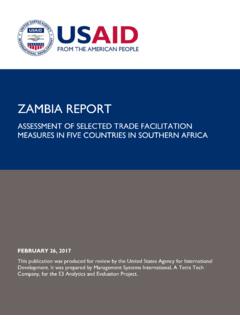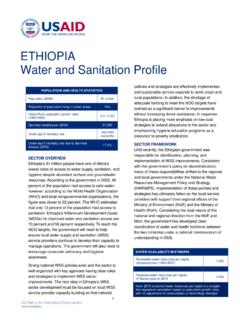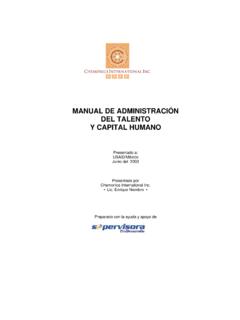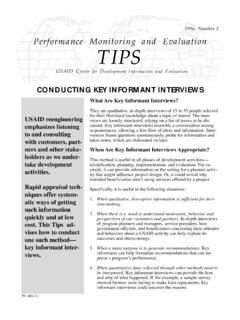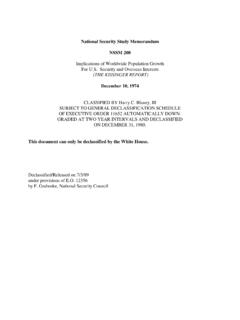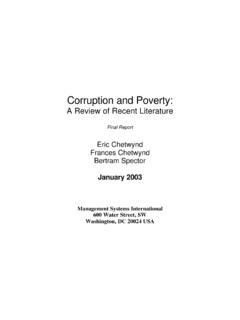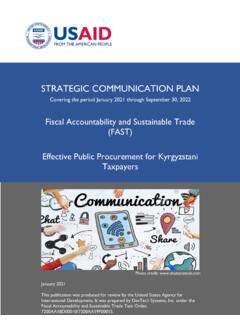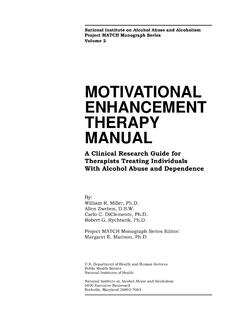Transcription of TRAINING REPORT 3 DAY TRAINING OF TRAINERS ON ...
1 TRAINING REPORT 3 DAY TRAINING OF TRAINERS ON PARTICIPATORY PLANNING July, 18-20, 2016 Rock City Resort - SWAT Jul 2016, This TRAINING REPORT was made possible with support from the American people through the Agency for International Development (USAID). The contents of this REPORT are sole responsibility of The Trust for Democratic Education and Accountability (TDEA) and do not necessarily reflect the views of USAID or the Government. 3 TABLE OF CONTENTS 1. BACKGROUND .. 4 2. TRAINING OBJECTIVES .. 4 3. PARTICIPANTS PROFILE .. 4 4. RESOURCE PERSONS PROFILE .. 5 5. VENUE AND DATE .. 5 6. PROCEEDINGS .. 5 SESSION I: INTRODUCTION TO WORKSHOP AND OBJECTIVES.
2 5 SESSION II: PARTICIPATORY DEVELOPMENT AND ITS IMPORTANCE IN LOCAL GOVERNMENT SYSTEM .. 6 SESSION III: PROJECT CYCLE .. 6 SESSION IV: PARTICIPATORY PLANNING .. 6 SESSION V: SOCIAL MOBILIZATION FOR PARTICIPATORY DEVELOPMENT .. 7 RECAP .. 7 SESSION VI: COUNCIL MEETING FOR PRIORITIZATION RANKING .. 7 SESSION VII: ROLE OF COUNCILORS DISTRICT, TEHSIL AND VILLAGE LEVEL .. 7 SESSION VIII: TYPES OF DEVELOPMENT SCHEMES .. 7 SESSION IX: MONITORING OF DEVELOPMENT SCHEMES .. 8 RECAP .. 8 MOCK EXERCISE .. 8 TRAINING EVALUATION AND POST-TEST .. 9 CERTIFICATE DISTRIBUTION AND CLOSING .. 9 7. TRAINING EVALUATION .. 9 A) Pre- TRAINING Assessment of the Participants: .. 9 B) Post- TRAINING Assessment of the Participants: .. 9 8. LESSONS LEARNT AND BEST PRACTICES: .. 11 9. RECOMMENDATIONS.
3 11 ANNEXES .. 11 ANNEX II: PARTICIPANTS 12 4 1. BACKGROUND The three day TRAINING titled TRAINING of TRAINERS on Participatory Planning for Cycle 10 Enhancing the Capacity of Elected Representatives and Strengthening Citizens Engagement for Transparent, Responsive, Efficient and Accountable Local Governments with an objective to build the capacity of Master TRAINERS from eight implementing partners was held at Rock City Resort - SWAT from 18th 20th Jul, 2016. A total of 27 participants from eight organizations [See Annex i for list of organizations] participated in this TRAINING . The purpose of this TRAINING was to train participants on the concept of Participatory Planning and Development and its role in the local government system.
4 TRAINING included various topics such as Participatory Development, Participatory Planning, Role of Local Government Representatives and various skills and traits required for effective participatory planning. The TRAINING methodology was interactive as the TRAINERS ensured that knowledge was not only disseminated but accurately perceived and understood by the participants. And in order to ensure this, TRAINERS engaged participants in discussions and kept the forum open for feedback, queries and suggestions. These discussions and interactive sessions were supported through TRAINING material such as pre and post-test, power point presentations and handouts on participatory planning. 2. TRAINING OBJECTIVES The objectives of this three-day TRAINING were as follows: - To increase the understanding of participants on Participatory Development and its importance in Local Government System through TRAINING sessions - To educate the participants about the current project cycle and to educate them about Councilors role in each step of project cycle through TRAINING sessions and discussions with support of relevant material; - To enhance the understanding of participants through TRAINING sessions and discussions on the concept of participatory planning for Development schemes.
5 - To prepare the participants for upcoming trainings of 14,000 councilors in KPK through mock sessions with the support of relevant case studies and pre and post-tests 3. PARTICIPANTS PROFILE The TRAINING participants included staff members of implementing partners and local government representatives. Total number of participants was 27 (males: 23; females: 4) who belonged to eight partner organizations (see Annex ii for list of participants). 5 4. RESOURCE PERSONS PROFILE The team which delivered sessions during the TRAINING comprised of 2 internal experts from Capacity Building Team - Citizens Voice Project. Given below is a brief description of the TRAINERS along with their sessions conducted by them (See Annex iii for detailed agenda).
6 5. VENUE AND DATE The TRAINING was organized at Rock City Resort - SWAT from 18th 20th Jul, 2016. 6. PROCEEDINGS DAY 01 SESSION I: INTRODUCTION TO WORKSHOP AND OBJECTIVES The TRAINING began with recitations of Holy Quran and Bible keeping in view the diversity of group. It was formally initiated by Mobeen Ajaib Assistant Manager Capacity Building who shared the objectives of TRAINING . Ubaid Ullah Chaudhary Director CVP warmly welcomed the participants, thanked them for sparing time to attend these sessions, delivered the welcome note and invited Mr. Shahid Fayaz CEO-TDEA to deliver the inaugural note. Moving on, CVP s introduction was shared by Mobeen Ajaib who divided the participants into two groups and the group for participatory planning # Name Designation Session title 1 Mobeen Ajaib Assistant Manager Capacity Building 1.
7 Welcome Address and setting the stage 2. Participatory Development and its importance in Local Government Systems 3. Project Cycle 4. Participatory Planning 5. Social Mobilization for Participatory Development 6. Role of Councillors District, Tehsil and Village Level 7. Monitoring of Development Schemes 8. facilitation Skills 9. Mock Sessions 2 Nazar Abbas Naqvi Manager Capacity Building 1. Council Meeting for Prioritization Ranking 2. Types of Development Schemes 3. Mock Sessions 6 discussed the agenda and set the norms of trainings in detail. She also asked participants to share their expectations and fears regarding TRAINING . Pre- TRAINING assessment test was taken from the participants. TRAINING norms were set with consensus from the participants.
8 These were as follows: - Participants respect each other s point of view - Respect the diversity in the group - Ensure daily attendance as per schedule - Put cell phones on silent - All participants actively participate in discussion - Avoid discussion with each other - Be careful about social and gender sensitivity - No pen tick tick SESSION II: PARTICIPATORY DEVELOPMENT AND ITS IMPORTANCE IN LOCAL GOVERNMENT SYSTEM In this session participants were introduced to the core concepts of development, local government system and participatory development. The discussion revolved around participatory development and its importance and role in the local government system. Participants were engaged in group work where all participants were divided into four groups and they were assigned a case study of Lodhran Pilot Project.
9 All the groups were also given some questions regarding the case and they were asked to deliver their findings and answers through presentations. Participants successfully delivered the presentations which were followed by a detailed discussion for further clarity of the subject matter. Through this interactive session and group work, it was showcased that participatory approach achieves sustainability and efficacy when people are completely involved in the process. SESSION III: PROJECT CYCLE Project cycle was explained with the help of presentations and the trainer focused on 4 phases of the current cycle. Detailed discussion was held on each phase and queries of participants were answered. Moreover this session also had a brief discussion on the role of counselors and locally elected representatives at village council level.
10 SESSION IV: PARTICIPATORY PLANNING The session began with an overview of participatory planning and the importance of participatory planning. The session also had group work where participants were divided into four groups and each group was assigned various elements of the participatory planning cycle. The groups presented their ideas on the process of the assigned elements and the session concluded with a detailed discussion on the process and steps of participatory planning. 7 SESSION V: SOCIAL MOBILIZATION FOR PARTICIPATORY DEVELOPMENT The session on social mobilization for participatory development was one of the most interactive and discussion oriented sessions during the TRAINING and it began with a brief overview of social mobilization.
